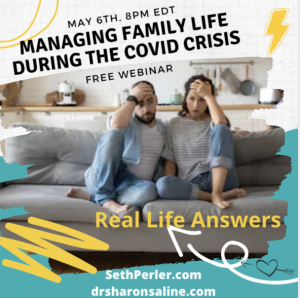 Now more than ever, it seems like kids of all ages are wrestling with understanding, budgeting and managing their time. One parent tells me: “My 10 year old daughter dawdles for over an hour at night before going to bed. It takes her forever to get ready.” Another one shares: “My teenager will spend hours online gaming or surfing the net. He forgets to eat or use the bathroom.” Sound familiar? In a world of no schedules, kids with ADHD have lost the typical markers for knowing when one thing stops, when something else should begin and how long a task should take. Why do they struggle with time and how can you assist them in improving this key executive functioning skill? Many kids with ADHD develop their sense of time more slowly than their neurotypical peers. Their brains live primarily in the present: whatever is happening now matters most, with little concern for what comes afterwards. As kids mature into young adulthood, they are better able to consider the implications of their current actions with future endeavors, situations and consequences. But for now, the unhappiness and boredom of the COVID confinement make it incredibly difficult to consider what’s coming down the pike. They are bored and confused, wandering around in a vast expanse of unstructured time.
Now more than ever, it seems like kids of all ages are wrestling with understanding, budgeting and managing their time. One parent tells me: “My 10 year old daughter dawdles for over an hour at night before going to bed. It takes her forever to get ready.” Another one shares: “My teenager will spend hours online gaming or surfing the net. He forgets to eat or use the bathroom.” Sound familiar? In a world of no schedules, kids with ADHD have lost the typical markers for knowing when one thing stops, when something else should begin and how long a task should take. Why do they struggle with time and how can you assist them in improving this key executive functioning skill? Many kids with ADHD develop their sense of time more slowly than their neurotypical peers. Their brains live primarily in the present: whatever is happening now matters most, with little concern for what comes afterwards. As kids mature into young adulthood, they are better able to consider the implications of their current actions with future endeavors, situations and consequences. But for now, the unhappiness and boredom of the COVID confinement make it incredibly difficult to consider what’s coming down the pike. They are bored and confused, wandering around in a vast expanse of unstructured time.  Start by providing basic structure to their days and using alarms and alerts to mark the beginning and ending of school blocks, snack, water or meal breaks, exercise or outside experiences and socializing. Do this for yourself too. Since stress hits weaker executive functioning skills first, many kids with ADHD are at an additional disadvantage in terms of organization, planning, persistence and time controls. Many of them will overfocus on tasks which further complicates matters. Prolonged periods of hyperfocus actually deplete the glucose centers in the brain, raise cortisol levels and increase internal stress. Taking planned breaks at agreed upon points (anywhere from thirty to ninety minutes depending on age) helps us reset. Luckily, time management responds extremely well to direct instruction. This means you can work on improving this issue successfully and see progress rather quickly. You’ll need to expect to rely on cueing and make agreements about reminders with your child or teen. We want to improve this skill together based on what makes sense to their unique brains and what you’ve observed about their habits. Follow these tips for teaching your son or daughter how to understand and manage time better:
Start by providing basic structure to their days and using alarms and alerts to mark the beginning and ending of school blocks, snack, water or meal breaks, exercise or outside experiences and socializing. Do this for yourself too. Since stress hits weaker executive functioning skills first, many kids with ADHD are at an additional disadvantage in terms of organization, planning, persistence and time controls. Many of them will overfocus on tasks which further complicates matters. Prolonged periods of hyperfocus actually deplete the glucose centers in the brain, raise cortisol levels and increase internal stress. Taking planned breaks at agreed upon points (anywhere from thirty to ninety minutes depending on age) helps us reset. Luckily, time management responds extremely well to direct instruction. This means you can work on improving this issue successfully and see progress rather quickly. You’ll need to expect to rely on cueing and make agreements about reminders with your child or teen. We want to improve this skill together based on what makes sense to their unique brains and what you’ve observed about their habits. Follow these tips for teaching your son or daughter how to understand and manage time better:
- Externalize time: Kids with ADHD struggle to feel time: they don’t have an internal sense of minutes or hours passing. Use external, analog clocks or a Timed Timer so that kids can see time moving which will lead to them feeling it.
- Build awareness about time: Neutrally point out how their actions relate to time by verbalizing things like “Look at this, cleaning up your toys took five minutes” or “Let’s set the timer and see how long it takes to put on our pajamas and brush our teeth.” Create games to see who can pick up 20 items from their bedroom fastest or who can monitor the timer when the cookies are backing.
 Model how to refer to clocks to check on the time.
Model how to refer to clocks to check on the time. - Teach estimation skills: Being able to estimate how long something will take is a valuable tool that is never too late to learn. You have to show your kids how to think backwards about time because this is how they can figure out how to plan accordingly. For instance, let’s say they need to be in their online class at 9 a.m. Work backwards, listing the activities they need to do beforehand and guess how long each task will take: getting out of bed (15 minutes), using the bathroom (5 minutes) putting on clothes (10 minutes), brushing their teeth and hair (10 minutes), eating breakfast (15 minutes) and setting up the computer with necessary school items (10 minutes), messing around (10 minutes). If you add these together and subtract 75 minutes from 9 a.m., then you’ve got to set the alarm at 7:45 am.
- Consider the Now/Not now brain: Kids with ADHD are engaged in the moment. Whether it’s compelling or tedious, what’s happening now is what they are focused on. Because it’s tough to shift from one thing to another, they face challenges with following alarms, alerts and reminders. Talk with them about how they can make transitions more successfully. Use simple breathing exercises (alternate nostrils or hands on the stomach), body awareness techniques (noticing heart rate or tension) or statements to direct themselves (“I need to stop gaming now. I can return tomorrow” or “I have to begin my math homework but I can take a break in fifteen minutes.” These tools will aid them in leaving one activity and going to something else.
 Be patient. Keep these scaffolding tools in place longer than you think. Most of all, cut yourselves and your kids some slack during this strange situation. Some days managing time will go better than others. That’s okay! Focus on working together to learn this important skill.
Be patient. Keep these scaffolding tools in place longer than you think. Most of all, cut yourselves and your kids some slack during this strange situation. Some days managing time will go better than others. That’s okay! Focus on working together to learn this important skill.


 FREE WEBINAR with Seth Perler and Dr. Sharon Saline May 6, 2020 8 pm EST Burned out on COVID-19?! We get it. Who would’ve thought that the world would change so dramatically? Schedules? What schedules? Kids are staying up late, sleeping to all hours, chores have gone by the wayside, parents are snippy with each other and the kids, and visa versa. Even the dog is unsure of what’s going on!
FREE WEBINAR with Seth Perler and Dr. Sharon Saline May 6, 2020 8 pm EST Burned out on COVID-19?! We get it. Who would’ve thought that the world would change so dramatically? Schedules? What schedules? Kids are staying up late, sleeping to all hours, chores have gone by the wayside, parents are snippy with each other and the kids, and visa versa. Even the dog is unsure of what’s going on! 